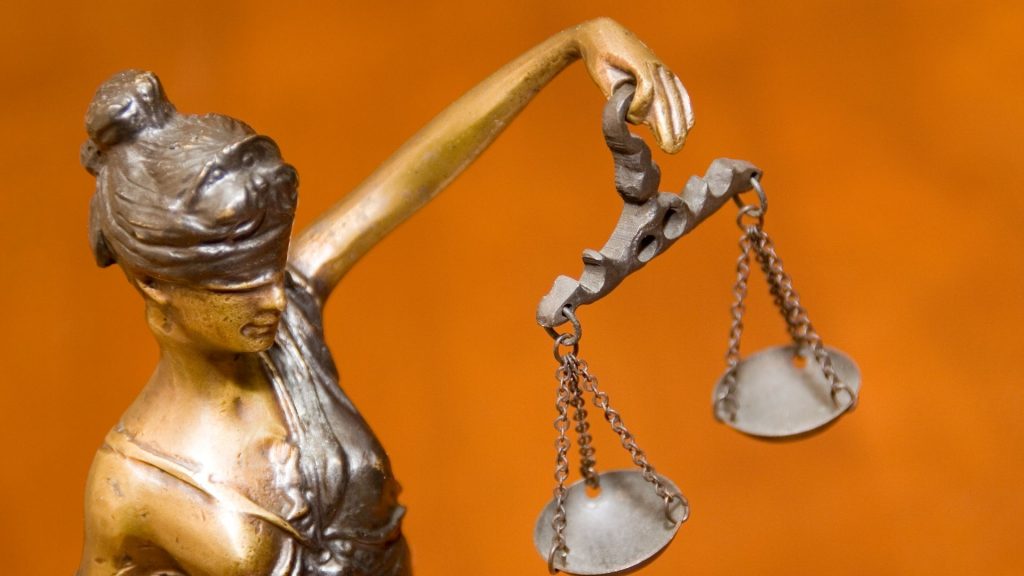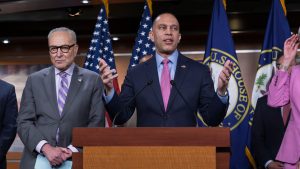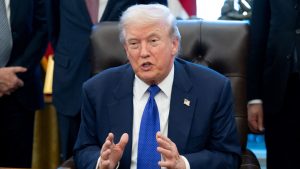Trump says liberal judges are blocking his agenda — data suggests otherwise

President Donald Trump’s loss rate in federal district court is getting worse by the month. In February, district judges were ruling against him about 53% of the time, according to an analysis by Stanford University political science professor Adam Bonica. By May, Trump’s losing percentage was up to 96%, and the adverse rulings weren’t only coming from liberal judges.
The president seems to have noticed. In a Truth Social post on Memorial Day, he wished a sardonic happy holiday to all, including, “USA HATING JUDGES WHO SUFFER FROM AN IDEOLOGY THAT IS SICK, AND VERY DANGEROUS FOR OUR COUNTRY.”
He continued: “HOPEFULLY THE UNITED STATES SUPREME COURT, AND OTHER GOOD AND COMPASSIONATE JUDGES THROUGHOUT THE LAND, WILL SAVE US FROM THE DECISIONS OF THE MONSTERS WHO WANT OUR COUNTRY TO GO TO HELL.”
The blistering criticism of the federal judiciary by the president and some Republicans in Congress alleges bias from liberal judges and an effort to halt his agenda. But the data shows both liberal and conservative judges are ruling against President Trump at nearly identical rates.
Cutting across partisan lines
Liberal judges have ruled against Trump in 84% of cases, while conservative jurists have sided with his opponents 82% of the time, according to Bonica’s analysis, which he released on March 18. His newer data indicates Trump’s losing streak has worsened.
The rulings come in multiple forms — temporary restraining orders, injunctions, or a final decision based on the merits of the case.
“This isn’t partisan opposition to Trump — it’s the judiciary functioning as intended by cutting across partisan lines to uphold the Constitution,” Bonica wrote.
Bonica’s analysis included 32 cases in which a liberal judge presided and 11 overseen by a conservative judge. Liberal judges are hearing significantly more cases due to geography and “venue shopping” — where plaintiffs file lawsuits in jurisdictions with judges perceived as more favorable to their issues.
In countless cases, experts say, plaintiffs — liberals and conservatives alike — seek out a court or a judge they believe would give them a favorable outcome.
For instance, after President Joe Biden tried to end the “Remain in Mexico” policy enacted during Trump’s first term, Texas and Missouri filed suit in the Amarillo division of the Northern District of Texas. That court has a single presiding judge, Matthew J. Kacsmaryk, a Trump appointee with a history of conservative legal advocacy. Kacsmaryk granted the plaintiffs a stay, ordering the Biden administration to enforce the rule, which required asylum seekers to wait in Mexico, while the case made its way through the courts.
Liberal versus conservative
Unbiased. Straight Facts.TM
Liberal judges are ruling against the president in 84% of cases, while conservative judges are ruling against him in 82% of cases.

What separates a conservative judge from a liberal judge is often different from what separates a conservative politician from a liberal politician.
Georgetown law professor David Super said conservative judges are often originalists, meaning they seek to interpret the Constitution, laws and provisions based on how they were understood at the time they were written. Liberal judges believe the country’s principles have evolved and that judicial rulings should reflect that evolution.
However, that doesn’t always apply.
“You have a lot of issues that are pretty clear issues of law, and it doesn’t matter who the judge is on those cases,” Super said.
For example, Trump signed an executive order in March that, in essence, banned the federal government from doing business with the law firm WilmerHale. Trump claimed the firm’s actions threaten national security and limit constitutional freedoms. His reasoning: WilmerHale hired Robert Mueller and some of his deputies after their investigation into Russian interference in the 2016 presidential election.
A conservative George W. Bush appointee struck the WilmerHale order down.
“The cornerstone of the American system of justice is an independent judiciary and an independent bar willing to tackle unpopular cases, however daunting,” Judge Richard Leon wrote in his ruling. “The Founding Fathers knew this!”
The Trump administration argued that WilmerHale’s claims of harm from the executive order amounted to mere “speculation.”
Judge Leon responded, “This argument is absurd!”
Judicial jurisdiction
Super noted that some courts have dismissed cases against Trump regardless of the presiding judge’s ideology.
“It’s very clear there also have been some cases that have been brought against the administration that have not had the basic requirements to be heard in court to establish jurisdiction,” Super said. “And very, very liberal judges have rejected those cases as well as conservative ones.”
Judge James Boasberg, who some Republicans said should be impeached for his rulings against Trump, declined to halt deportation flights. After the ACLU filed an emergency appeal, Boasberg stated he was “sympathetic” to their cause, but didn’t believe he had the authority to issue a nationwide restraining order because the Supreme Court had recently ruled that challenges to deportations must be filed in the jurisdiction where individuals are detained. The immigrants were in Texas, while Boasberg is in Washington.
Judicial independence
Do judges rule in favor of a president or his party because they appointed them? Or do presidents choose judges who are more likely to rule in their favor because of their judicial philosophy?
Super said it’s the latter.
“Presidents look at candidates for judgeships and think about which judges are likely to support the kinds of initiatives that the president wants to take,” he said. “Maybe 30 years ago, that didn’t happen with district court judges. But I think it now happens with every judicial appointment on any level in the federal courts.”
Super, and many other legal scholars, don’t believe judges feel gratitude toward the president or party that appointed them, at least not in a way that would affect their rulings.
“Once you’re on the bench, you work for yourself and you work for the people — you don’t work for the person who appointed you,” Super said. “Judges are there for life. Presidents go out of office after a maximum of eight years, and I don’t think they see themselves as tied.”





